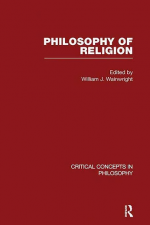Tab Article
The past forty years or so have witnessed a renaissance in the philosophy of religion. New tools (modal logic, probability theory, and so on) and new historical research have prompted many thinkers to take a fresh look at old topics (God’s existence, the problem of evil, faith and reason, and the like). Moreover, sophisticated examinations of contentious new issues, such as the problem of religious diversity or the role of emotions and other non-evidential factors in shaping rationally held religious beliefs, have also emerged.
Addressing the need for an authoritative reference work to make sense of this rapidly growing and ever more complex corpus of scholarly literature, Philosophy of Religion is a new title in the Routledge Major Works series, Critical Concepts in Philosophy. Edited by a leading scholar, it is a four-volume collection which brings together key examples of the most important recent work, together with carefully selected historical pieces needed to understand them. Volume I focuses on concepts of the divine while Volume II explores arguments for and against the existence of a divine reality, with special attention to the problem of evil, the problem of divine hiddenness, and the case for naturalism. Volume III and the first part of Volume IV are devoted to broadly epistemic issues: the cognitive value of religious experience; the proper role of evidence in the formation of religious belief; the nature of justified religious belief; and pragmatic arguments for religious belief. The remainder of Volume IV introduces some of the best recent work on religious diversity, tolerance, and the public role of religion in a pluralistic society.
The Philosophy of Religion is fully indexed and has a comprehensive introduction, newly written by the editor, which places the material in its historical and intellectual context. It is an essential work of reference and is destined to be valued by scholars and students as a vital one-stop research resource.


